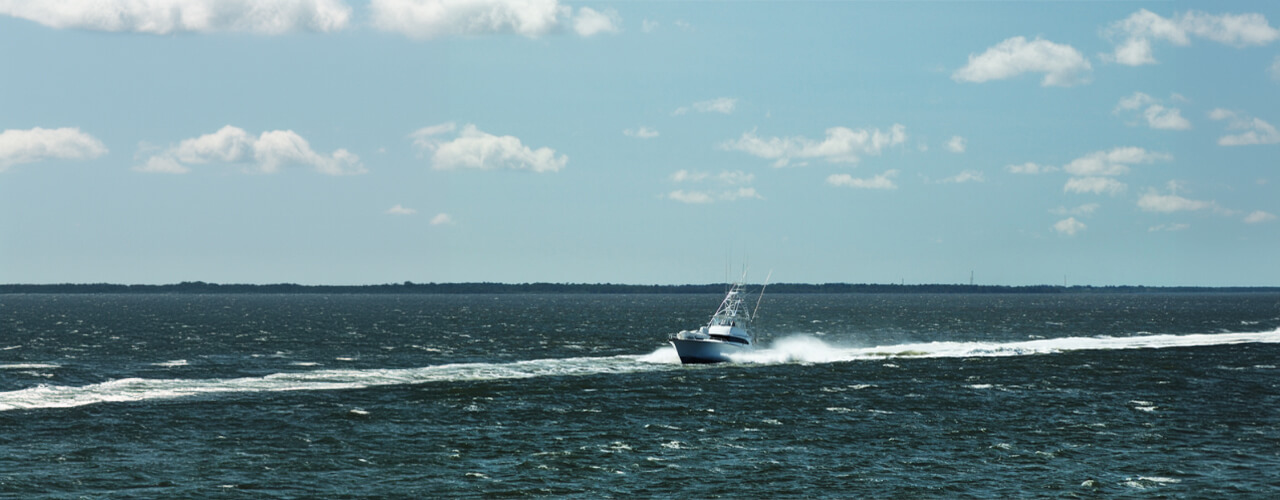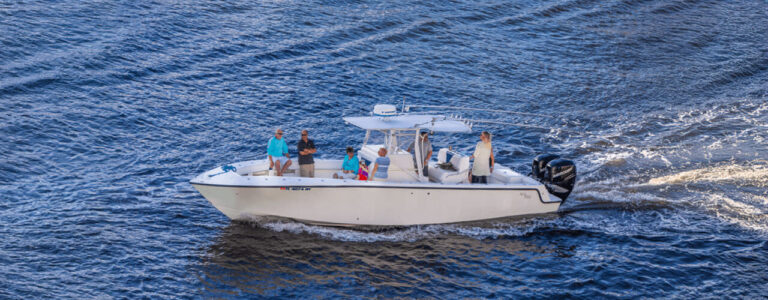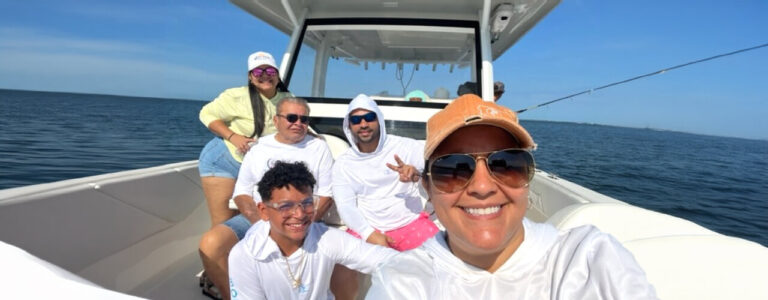
Owning a boat is more than a hobby or interest. For many, it is a lifestyle. One way to maintain the lifestyle and protect your investment is through boat insurance. But what does boat insurance cover? While coverages can vary between policies, most boat insurance policies cover liability and damage to your boat.
What does boat insurance cover? More specifically, a good boat insurance policy will cover your vessel or personal watercraft if it is stolen, damaged in an accident, destroyed by fire, sinks, or struck by lightning. Your boat insurance policy might also cover fishing equipment, fittings, machinery, and other items on your boat.
Do you know what kind of coverage you need to protect your boat? Learn more about boat insurance and find out what you need to stay afloat.
Is Boat Insurance Worth Getting?
Since boat insurance is not legally required in Florida, you might think that it’s not worth the hassle to shop around for it. However, we are here to tell you that it is essential for peace of mind and financial security. For example, suppose you get into an accident that causes injuries to passengers on another boat. If you are at fault, you will be held financially responsible for all damages and injuries, which will end up costing you a fortune. In addition, without insurance, you will be liable for repairing your boat, potentially someone else’s boat, their legal fees, or possibly even someone else’s medical expenses. Yes, all that will come out of pocket.
Therefore, the best way to be prepared for anything that comes your way is to have boat insurance. By doing so, you will protect your precious vessel, yourself, and your passengers. Several factors determine how much boat insurance you need, including the value of the boat, the size of the motor, and its age. To compensate for the amount of damage high-performance boats can do, they should be insured at a higher level.
Keep in mind that when the time comes to shop for boat insurance, there are many different options you can choose from. So first, ask your boat owner’s friends, neighbors, and co-workers about their experiences with various insurance companies. Furthermore, take your time, check all the competitive rates, and research what insurance would best fit your needs. Then you can make a well-informed decision that makes you feel confident whether your boat is in port, out at sea, or stored in a garage. After all, boating is all about adventure, right?

What Coverages are Typical in a Boat Owner’s Policy?
Although some of these policies are optional, it’s best to thoroughly research each coverage and choose the ones that work best for you. Some of the most common boat coverages you’ll find include:
- Property damage liability coverage protects you from the damage you cause to another vessel or person’s property if your boat collides with theirs. For example, suppose you have an accident; the insurance pays to repair or replace the damaged boat and any property damage you may have caused.
- Collision damage coverage comes in handy when your vessel sustains damage from an accident. The collision coverage helps cover the repairs or the replacement of the boat.
- Bodily or Personal injury liability coverage helps cover other people when you are responsible for their injuries, including legal fees and settlements. An excellent general rule is to buy enough liability insurance to cover any losses you might suffer in a lawsuit.
- Hull coverage – This type of coverage helps with any physical damage that may occur by natural disasters, and it often includes the motor and electrical equipment on board.
- Salvage coverage – In the event, your boat stops working and can’t be towed, you will have to reach out to a salvage company to have it recovered. Unfortunately, these companies usually request to be paid in percentage to the boat’s value, which can be pretty pricey. To avoid paying a fortune, make sure to choose insurance companies that already salvage coverage.
Does Boat Insurance Cover Sinking?
Whether your boat insurance covers sinking depends on the insurance policy you have. Typically, you should be covered if your vessel sinks due to fire, theft, natural disasters, or vandalism, and you’ve added a comprehensive boat insurance policy.
However, it’s important to remember that if you only opted for liability insurance, your insurance company will most likely not reimburse you for your loss. So while liability coverage helps to protect you when it comes to injuries and damage caused by you financially, it does nothing when it comes to protecting the boat’s value.
Another thing to keep in mind is that if your boat sinks due to negligence, for example, if you failed to perform essential and preventative maintenance that caused it to sink, it is improbable that your insurance provider will cover you. Aside from negligence, some insurance policies may also have distance, location, or weather restrictions to consider when it comes to sinking. For instance, if your policy only provides coverage for a specific area, but you operate your boat in a place where it’s not covered, should an accident occur and the boat sinks, your insurance policy will not cover the incident.
Does Boat Insurance Cover Hitting a Rock?
What happens when you hit a rock is similar to when a boat sinks. Suppose you operated the vessel safely, and it was a genuine accident. In that case, your insurance policy should cover damage caused by hitting a rock as long as you opt for full coverage insurance. Your insurance company will reimburse you so that you can repair the boat, or they will replace it entirely. However, if you’ve consumed alcohol or operated the vessel recklessly, this can be seen as negligence and can result in you not being covered by the policy.
Make sure you read your policy carefully to understand what it covers. Several insurance policies have built-in potential salvage, removal, and wreckage costs, so your payout won’t be compromised. However, there are others where an insurer may deduct the salvage costs from the value of the boat, which will affect the reimbursement you’ll receive. Additionally, your carrier may offer you a check for the value of your boat, but also require that a certain amount goes towards salvage and wreckage removal.

What Happens if Your Boat is Totaled?
If your boat is stolen or destroyed, the insurance company may pay you based on the Agreed Value, Actual Cash Value, or the Replacement Cost Value. So let’s say you’ve got a two-year-old boat that is insured for $50,000, and it’s become a total loss. What happens?
You and the insurance company agreed upon the boat’s worth before the loss with the Agreed Value. Let’s put this example into context. If the boat became a total loss, the insurance company would pay you the $50,000 you have mutually agreed to based on the amount you insured it for, even if today’s value is less or more.
With Actual Cash Value, you would be paid only the amount of the boat’s value at the time of the loss or the insured value, whichever is less. The insurance company calculates the Actual Cash value based on boat price guides and other comparable boats listed on the market.
With the Replacement cost policy, a new boat would replace your old one. However, you must purchase this policy when the boat is brand new, and it is only available until the boat is two to three years old. As soon as the vessel reaches the age at which its replacement cost is no longer feasible, the policy will be switched to Agreed Value or Actual Cash Value.
Keep Your Boat Safe at Port Sanibel Marina
Port Sanibel Marina is the perfect destination for your boat. Keep your boat safe in our wet slips and dry storage. You can even schedule a launch from Port Sanibel Marina right from the palm of your hand thanks to our partnership with BoatCloud.
You’ll also find that Port Sanibel Marina is more than a full-service marina, but a true destination on the water. Enjoy amenities like waterfront dining, shopping at the Ship Store and Coastal Outfitters, boat and kayak rentals, fishing charters, and much more. Reach out to Port Sanibel Marina now to learn more about our services and amenities. Call (239) 437-1660 or contact us online now.


